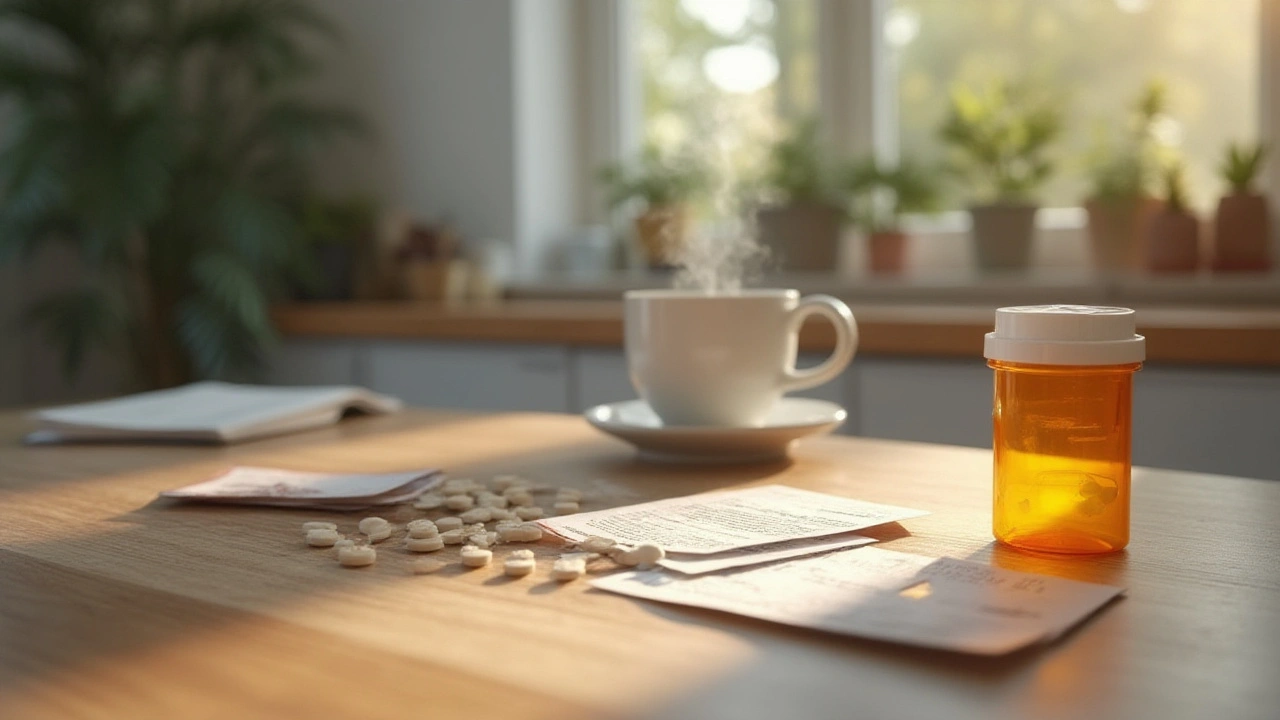Drug Interactions: Simple Advice for Medication Safety at Home
Ever stood in front of a medicine shelf, checking labels and wondering: can you mix one pill with another? Drug interactions aren’t just complicated chemistry—they're part of everyday choices, from what you give your baby to what you grab for a cough. Knowing about these interactions means fewer surprises and safer treatments at home.
Why should you care about drug interactions? Even common items like vitamins, cough syrup, or herbal remedies can react badly together. Something as simple as combining a painkiller with a cold medicine might seem harmless, but certain combos can double up ingredients or cause new side effects.
Where does this matter most? If you’re stocking a newborn first aid kit or looking after an older family member, every choice counts. For new parents, that means double-checking with your doctor or pharmacist before mixing fever reducers with cough syrups. Every baby’s metabolism is different, and some medication can interact with even over-the-counter remedies.
Let’s talk about those "safe" home inhalations too. Many families reach for drugstore vapor rubs or saline solutions. Mixing essential oils without guidance, or adding in a prescription inhaler, might cause problems if you’re not careful. It’s not just about the prescription strength but also about the ingredients working together—or against each other—in your lungs.
People often think only prescription meds have risks, but those everyday vitamins in your cabinet also play a role. Some vitamins, especially B and K, can boost or block how other drugs work. For example, if you take blood thinners, piling on green leafy veggies or supplements can disrupt the whole process. Simple, right? But this is the stuff that slips through the cracks because it doesn’t show up clearly on packaging.
So, what’s the cheat code for safety? Always read packaging, keep an updated medication list, and bring it to doctor visits. If you add a new over-the-counter remedy, check with a pharmacist. Even a 2-minute chat can save hours of headaches later. If your family uses traditional home remedies along with modern meds, make sure you ask about that, too. Combinations matter more than you think—especially for little ones or older adults, who are more sensitive to changes.
Keeping this practical is simple: never guess. For babies and kids, use only the medicines your pediatrician recommends together, and write down what you’ve given and when. For adults juggling daily health, pharmacy apps or pill organizers can remind you which drugs or vitamins to take together—or keep apart.
Still have questions about what you can safely mix at home? This is a spot where asking can make a huge difference. Keep the conversations going—with your doctor, pharmacist, or even trustworthy health websites. Better safe than sorry, right?
How Medications Interact with Caffeine: Side Effects & What You Need to Know
Mixing caffeine with medications can get complicated. This article breaks down how caffeine changes drug effects, reveals surprising interactions, and gives practical tips.
Keanu Rutherford | Jul, 10 2025 Read More
